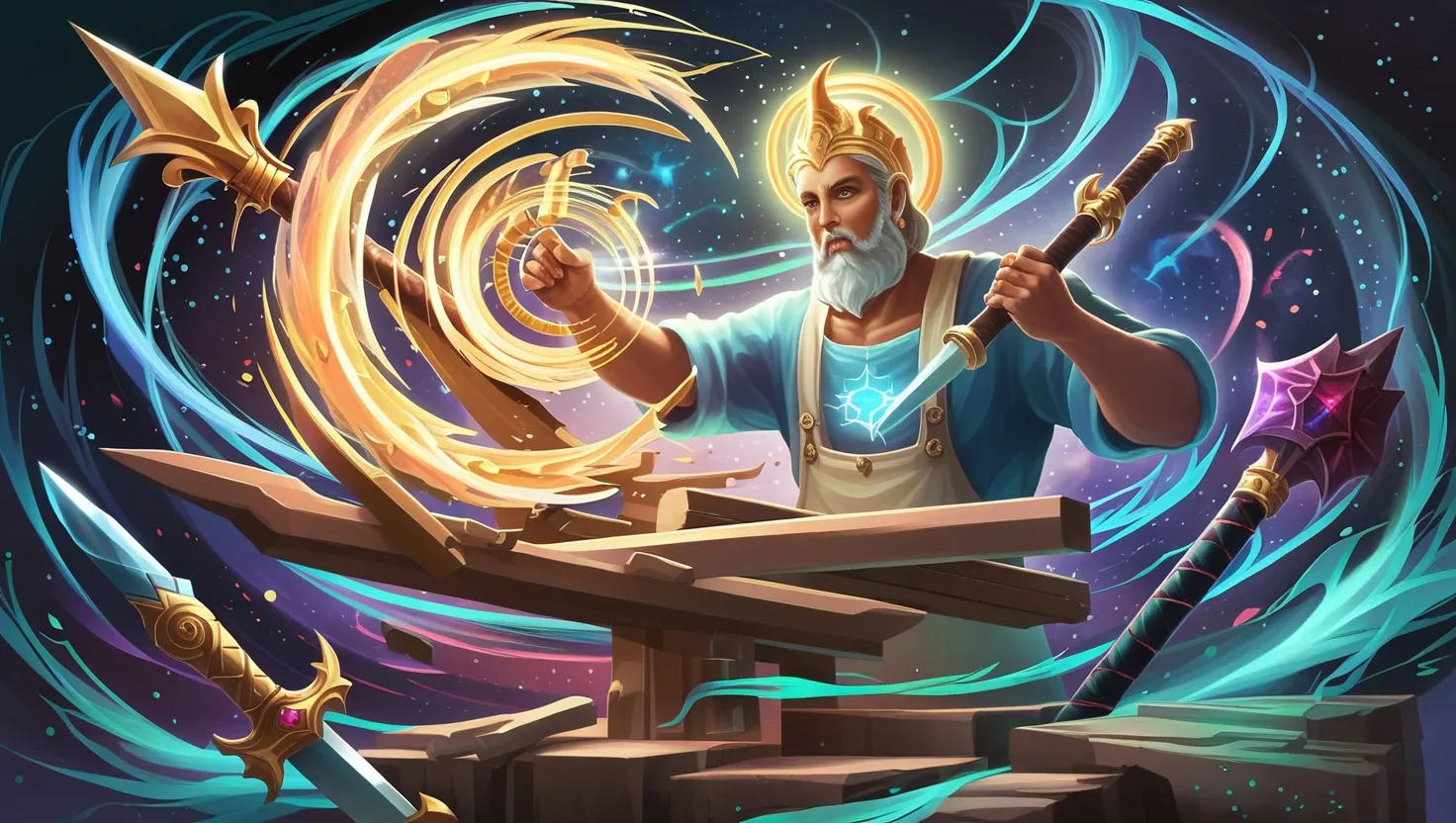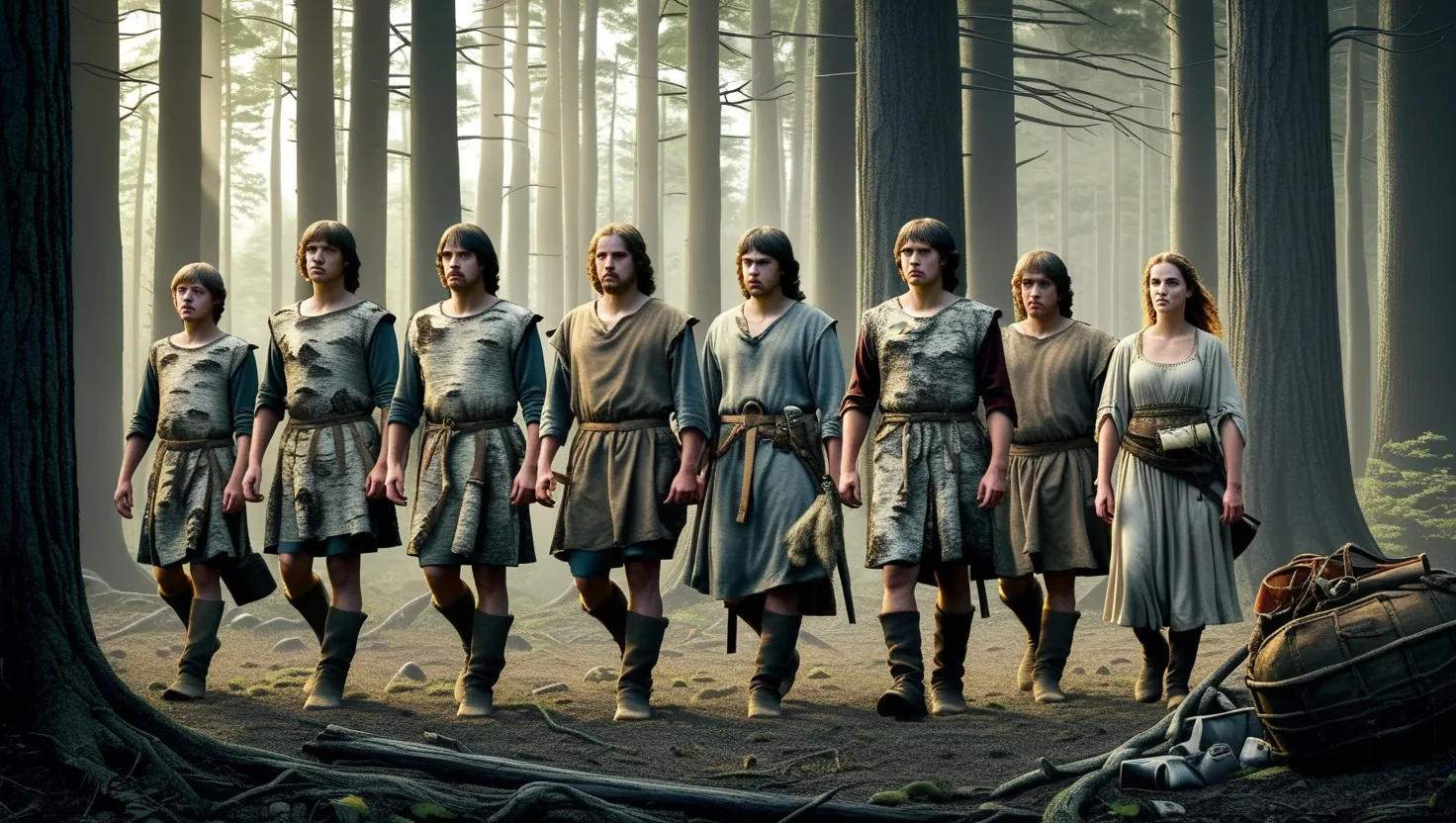Once upon a time, there lived a wise and respected king named Nahusha in the Chandravamsha lineage. His father, Ayu, and his mother, Prabha, who was the daughter of Svarbhānu, raised him with strong values of righteousness. With such a solid grounding, Nahusha earned the admiration and respect of the gods, making him a prominent figure in ancient lore.
Things took a dramatic turn when Indra, the king of the gods, decided to take some time off to fight against the demon Vritra. The gods needed someone to step up and rule in his absence, and guess who they picked? That’s right, our man Nahusha. Insert drumroll here for King Nahusha, the stand-in ruler of heaven.
At first, Nahusha totally nailed it. His reign was all about fairness and justice. The gods and heavenly inhabitants really took a liking to him. He seemed pretty cool until something rather familiar in power stories happened—he started feeling the high and mighty vibes a bit too strongly. Once humble and down-to-earth, Nahusha began donning the cloak of arrogance.
As his ego inflated, Nahusha started treating everyone around him—gods and sages alike—with a heaping dose of disrespect. Big mistake, right? His arrogance hit a new peak when he set his eyes on Shachi, Indra’s beautiful wife. Nahusha, now way out of line, proposed to her. Shachi was no fool and decided to put Nahusha to the test. She told him she’d marry him if he arrived at her chambers on a palanquin carried by the seven great sages—known as the Saptarishis.
Blinded by his ambition and burning with desire, Nahusha jumped at the challenge. He commanded the sages to carry his palanquin, which they did, despite the absurdity of the situation. Patience? Nah, Nahusha had none. Poor Agastya, one of the Saptarishis, struggled to keep pace due to his shorter stature. Nahusha, in his frustration, kicked Agastya and snapped, “sarpa, sarpa.” In Sanskrit, “sarpa” means “move faster,” but here’s the kicker—it also means “serpent.”
Agastya, pretty irked by the entire disrespectful episode, cursed Nahusha to become an actual serpent. Just like that, bam! Nahusha transformed into a snake and came crashing down to earth. As a serpent, he had a pretty long time to rethink his life choices and boy, did he have a lot to reflect on, realizing the gravity of his mistakes.
Years rolled by, and the story fast-forwards to the Dvapara Yuga. The Pandavas were on their final journey in the Himalayas. Bhima, the strongman of the Pandavas, stumbled upon Nahusha in his serpent form. Bhima, despite his legendary strength, found himself unable to overpower the cursed king-serpent. A boon from Agastya made Nahusha super powerful—any strong being who tried to take him down would find their strength vanishing like a magic trick gone wrong.
As Bhima struggled, Yudhishthira, the eldest Pandava and the embodiment of wisdom, came searching for his brother. He discovered Bhima ensnared by the serpent and decided to unravel the mystery. Nahusha, still in his serpent state, revealed his identity to Yudhishthira and recounted the tale of his downfall. Hearing this, Yudhishthira decided it was lesson time. He spoke to Nahusha about the true essence of being a good king, focusing on humility and respect for others.
Nahusha, humbled and moved by Yudhishthira’s wisdom, had a revelation moment. He realized he had been given another chance, and just like a transformative magic spell, Nahusha was relieved from his curse, reverting back to his human form. With a newfound sense of humility, Nahusha ascended back to heaven, leaving his slithery days behind him.
The tale of King Nahusha stands as a timeless lesson against arrogance. It’s a story many of us can relate to; getting a little power can sometimes make us lose sight of what truly matters—humility and respect. This age-old narrative reminds us that true strength isn’t about power or position. It’s about remaining humble, treating others with respect, and acknowledging our human frailties. It’s a lesson as old as time but one that never grows old.






